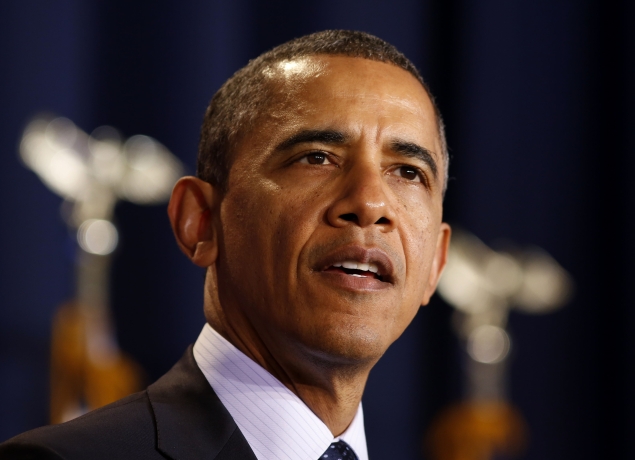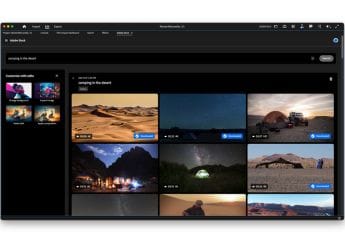- Home
- Internet
- Internet News
- US needs to win back European trust after NSA spying revelations: Obama
US needs to win back European trust after NSA spying revelations: Obama

Former intelligence contractor Edward Snowden disclosures about the sweep of the National Security Agency's monitoring activities triggered a national debate over privacy rights but also damaged relations with some European governments.
Obama said one of the aims of his trip to Europe this week was to reassure allies that he was acting to meet their concerns by limiting the scope of data-gathering.
"I am confident that everybody in our intelligence agencies operates in the best of intentions and is not snooping into the privacy of ordinary Dutch, German, French or American citizens," Obama told reporters after a nuclear security summit in The Hague.
However, Obama said he recognised that "because of these revelations, there is a process that is taking place where we have to win back the trust, not just of governments, but more importantly of ordinary citizens, and that is not going to happen overnight."
(Also see: Obama to propose curbing of bulk collection of phone records by NSA: Report)
As Obama began his trip to Europe on Monday, a senior administration official said Obama planned to ask Congress to end the bulk collection and storage of phone records by the NSA but allow the government to access the "metadata", which lists millions of phone calls made in the United States, when needed.
Obama said he was confident that the change "allows us to do what is necessary in order to deal with the dangers of a terrorist attack, but does so in a way that addresses some of the concerns that people have raised".
"I am looking forward to working with Congress to make sure that we go ahead and pass the enabling legislation quickly so that we can get on with the business of effective law enforcement," he said.
Checks and balances
He said this was "an example of us slowly, systematically putting in more checks, balances, legal processes. The good news is that I am very confident that it can be achieved."
Allegations in Britain's Guardian newspaper that the United States had monitored the phone conversations of 35 world leaders including German Chancellor Angela Merkel caused outrage in Europe last year. Germany summoned the U.S. ambassador for the first time in living memory.
(Also see: Merkel-tapping allegations prompt Germany to send intelligence chiefs to US)
In response, Obama in January banned U.S. eavesdropping on the leaders of close friends and allies, and began reining in the vast archive of Americans' phone data, seeking to reassure Americans and foreigners alike that the United States would take more account of privacy concerns.
He said on Tuesday that, although some coverage of the Snowden revelations had been sensationalised, fears over privacy "in this age of the Internet and 'big data'" were justified.
He also voiced faith in strong U.S. ties with Europe, saying the issue could be an "irritant" but did not define the relationship.
He said intelligence played a critical role in U.S. cooperation with other countries in countering terrorism, nuclear proliferation or human trafficking.
As technology had evolved, however, "the guidelines and structures that constrain how our intelligence agencies operated have not kept pace with these events and this technology", he said.
"There is a danger because of these new technologies that at some point it could be abused, and that is why I initiated a broad-based review."
He said U.S. intelligence teams were consulting closely with counterparts in other nations to ensure there was greater transparency about U.S. activities.
In an interview with the U.S. Fox network that aired on Tuesday, NSA Director General Keith Alexander said that under the administration's proposal the agency would work with telecommunications companies to retrieve data on "specific numbers that have a terrorist nexus."
"Rather than us taking all the data, all we're going to get is that data that directly links to a terrorist's number," he said on FOX News Channel's "Special Report with Bret Baier."
"This is an approach that I think meets the intent of protecting our civil liberties and privacy and the security of this country," he said.
Alexander denied that the NSA listens to all phone calls and reads all emails.
"I would get more respect if we could do all that. If you think about all the data that's out there, it's wrong. We don't do it. We wouldn't do it not even close."
© Thomson Reuters 2014
Catch the latest from the Consumer Electronics Show on Gadgets 360, at our CES 2026 hub.
Related Stories
- Samsung Galaxy Unpacked 2025
- ChatGPT
- Redmi Note 14 Pro+
- iPhone 16
- Apple Vision Pro
- Oneplus 12
- OnePlus Nord CE 3 Lite 5G
- iPhone 13
- Xiaomi 14 Pro
- Oppo Find N3
- Tecno Spark Go (2023)
- Realme V30
- Best Phones Under 25000
- Samsung Galaxy S24 Series
- Cryptocurrency
- iQoo 12
- Samsung Galaxy S24 Ultra
- Giottus
- Samsung Galaxy Z Flip 5
- Apple 'Scary Fast'
- Housefull 5
- GoPro Hero 12 Black Review
- Invincible Season 2
- JioGlass
- HD Ready TV
- Laptop Under 50000
- Smartwatch Under 10000
- Latest Mobile Phones
- Compare Phones
- Red Magic 11 Air
- Honor Magic 8 RSR Porsche Design
- Honor Magic 8 Pro Air
- Infinix Note Edge
- Lava Blaze Duo 3
- Tecno Spark Go 3
- iQOO Z11 Turbo
- OPPO A6c
- Lenovo Yoga Slim 7x (2025)
- Lenovo Yoga Slim 7a
- Lenovo Idea Tab Plus
- Realme Pad 3
- Moto Watch
- Garmin Quatix 8 Pro
- Haier H5E Series
- Acerpure Nitro Z Series 100-inch QLED TV
- Asus ROG Ally
- Nintendo Switch Lite
- Haier 1.6 Ton 5 Star Inverter Split AC (HSU19G-MZAID5BN-INV)
- Haier 1.6 Ton 5 Star Inverter Split AC (HSU19G-MZAIM5BN-INV)







![[Sponsored] Haier C90 OLED TV | Dolby Vision IQ, 144Hz OLED and Google TV in Action](https://www.gadgets360.com/static/mobile/images/spacer.png)









